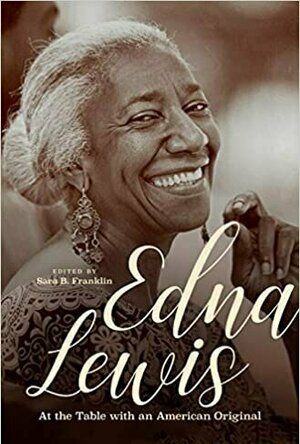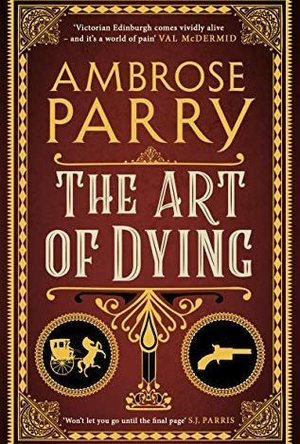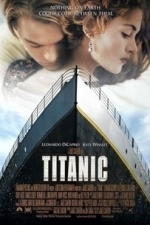Search
Search results
Samin Nosrat recommended Edna Lewis: At The Table with an American Original in Books (curated)
Ross (3284 KP) rated The Art of Dying in Books
Aug 15, 2019
Another fantastic historical medical thriller
* I received an advance copy of this book from the publishers and NetGalley in exchange for an honest review *
Ambrose Parry returns with a second book set in Victorian Edinburgh during its medical and scientific revolution. Where the first book centred around Sir James Young Simpson (and others!) search for the perfect anaesthetic, this book focuses more on the man and his reputation. Edinburgh is still a thriving centre of medical science, and reputation is everything. The book starts with Simpson's reputation being besmirched by rivals and former colleagues, looking to suggest negligence. Will Raven and Sarah Fisher team up again to gradually peel away at the facts underlying the case in question and reveal some disturbing trends.
While the plot itself, and its numerous twists and turns, is not exactly ground-breaking, it is excellently told, with clues scattered here, there and everywhere. And to weave this tale around actual historic events and cases really appeals to my mind.
This book, and its predecessor, is one of the most immersive books I have read in a long time. The reader really gets to feel as if they are in Victorian era Edinburgh. Admittedly, I read a fair part of this book while commuting to work in Edinburgh (indeed my children were all born in the Sir James Young Simpson maternity unit of the Edinburgh Royal Infirmary), but I feel the reader with less connection to the city would still get that same feeling.
There is again an underlying message of the treatment of women during those times (and indeed today), both how they are treated in the household and society and also their opportunities for a career and to explore their skills. Sarah Fisher is a strong female character who tolerates her place in society but yearns to break through the glass ceiling, proving her worth to all and sundry as she goes.
In contrast, Will Raven is somewhat spineless in this regard. He sees the issues with society but doesn't do much to act on it. Indeed, he starts the book having run away from Edinburgh and his chances of a relationship with a mere housekeeper, for fear of his heart dooming his medical career. Raven does get some amount of development, both in terms of his medical career, and also in terms of becoming the Victorian equivalent of "woke".
Parry's prose is fantastic and she (they?) truly allow the reader to feel the story unfold around them.
An utterly wonderful book with some interesting history lessons and important messages about the past that should help us build a fairer society today.
Ambrose Parry returns with a second book set in Victorian Edinburgh during its medical and scientific revolution. Where the first book centred around Sir James Young Simpson (and others!) search for the perfect anaesthetic, this book focuses more on the man and his reputation. Edinburgh is still a thriving centre of medical science, and reputation is everything. The book starts with Simpson's reputation being besmirched by rivals and former colleagues, looking to suggest negligence. Will Raven and Sarah Fisher team up again to gradually peel away at the facts underlying the case in question and reveal some disturbing trends.
While the plot itself, and its numerous twists and turns, is not exactly ground-breaking, it is excellently told, with clues scattered here, there and everywhere. And to weave this tale around actual historic events and cases really appeals to my mind.
This book, and its predecessor, is one of the most immersive books I have read in a long time. The reader really gets to feel as if they are in Victorian era Edinburgh. Admittedly, I read a fair part of this book while commuting to work in Edinburgh (indeed my children were all born in the Sir James Young Simpson maternity unit of the Edinburgh Royal Infirmary), but I feel the reader with less connection to the city would still get that same feeling.
There is again an underlying message of the treatment of women during those times (and indeed today), both how they are treated in the household and society and also their opportunities for a career and to explore their skills. Sarah Fisher is a strong female character who tolerates her place in society but yearns to break through the glass ceiling, proving her worth to all and sundry as she goes.
In contrast, Will Raven is somewhat spineless in this regard. He sees the issues with society but doesn't do much to act on it. Indeed, he starts the book having run away from Edinburgh and his chances of a relationship with a mere housekeeper, for fear of his heart dooming his medical career. Raven does get some amount of development, both in terms of his medical career, and also in terms of becoming the Victorian equivalent of "woke".
Parry's prose is fantastic and she (they?) truly allow the reader to feel the story unfold around them.
An utterly wonderful book with some interesting history lessons and important messages about the past that should help us build a fairer society today.
Sarah (7800 KP) rated Titanic (1997) in Movies
Feb 5, 2021
Shame about the romance
Film #13 on the 100 Movies Bucket List: Titanic
Titanic is a rather divisive film. There are many that absolutely love it, the creators of this list among them I don’t doubt. And then there are those that can’t stand it, despite it’s 11 Oscar wins. When it was first released, Titanic’s popularity was immense and it was all the rage at my high school. At that time I loved it like everyone else, but over the years I’ve grown to notice its flaws as well.
Titanic is another epic from the mind of James Cameron and unsurprisingly tells the real life story behind the sinking of the Titanic in 1912. As the true story wasn’t enough, the sinking is shown from the point of view of a love story between Rose Dewitt Bukater (Kate Winslet) and Jack Dawson (Leonardo DiCaprio). In 1996, treasure hunter Brock Lovett (Bill Paxton) and his team are searching the wreckage of the Titanic for a rare diamond and instead come across a preserved drawing of Rose, who meets with Brock and tells the story of her experiences onboard. These experiences involve a class divide, a fiancé with anger management issues (Billy Zane) and some nice (Kathy Bates) and not very nice (Frances Fisher) female aristocrats.
While I can understand why Cameron has intertwined a romance into this real life tragedy, for me it’s this story that lessens the impact of such a horrific tale and makes this into not quite the masterpiece he wanted it to be. There are the obvious plot holes and irrational actions – the hugely memorable water door scene that could blatantly fit more than one person, and the motives for keeping a invaluable diamond hidden for 80+ years only to throw it away in the ocean – are just two of the laughably bad scenes in this. Paired with a sometimes dodgy script (there’s a scene where Rose says “Jack” over half a dozen times in less than a minute) and some cheesy exposition and narration from the older Rose, do not make for an endearing story.
However if you can ignore the romance and poor fictional story, the rest of Titanic is an impressive bit of filmmaking. From the opening shots featuring real life footage of the actual wreckage of the Titanic to the effects used to bring the ship to life, they are truly stunning. You can really appreciate the love and care that has gone in to making this film, and the cinematography is faultless. Water is not an easy element to film yet James Cameron has mastered it with ease and including shots of the real wreckage only adds to the emotions that this evokes, especially as there are a lot of facts interlaced within the romance – the band continuing to play despite impending death is particularly moving. The cast too are strong despite the sometimes questionable material they have to work with. This is undoubtedly the film that made both Leonardo DiCaprio and Kate Winslet megastars in their own rights, although for me I much preferred the more low key performances from the likes of Kathy Bates, Bernard Hill (as Captain Smith) and Victor Garber (as ship builder Thomas Andrews).
Titanic is not perfect. It is a drawn out and overly long romance set aboard a disaster movie and it can’t justify being longer than 3 hours. However despite it’s flaws, it is still a masterpiece in filmmaking and truly an epic film.
Titanic is a rather divisive film. There are many that absolutely love it, the creators of this list among them I don’t doubt. And then there are those that can’t stand it, despite it’s 11 Oscar wins. When it was first released, Titanic’s popularity was immense and it was all the rage at my high school. At that time I loved it like everyone else, but over the years I’ve grown to notice its flaws as well.
Titanic is another epic from the mind of James Cameron and unsurprisingly tells the real life story behind the sinking of the Titanic in 1912. As the true story wasn’t enough, the sinking is shown from the point of view of a love story between Rose Dewitt Bukater (Kate Winslet) and Jack Dawson (Leonardo DiCaprio). In 1996, treasure hunter Brock Lovett (Bill Paxton) and his team are searching the wreckage of the Titanic for a rare diamond and instead come across a preserved drawing of Rose, who meets with Brock and tells the story of her experiences onboard. These experiences involve a class divide, a fiancé with anger management issues (Billy Zane) and some nice (Kathy Bates) and not very nice (Frances Fisher) female aristocrats.
While I can understand why Cameron has intertwined a romance into this real life tragedy, for me it’s this story that lessens the impact of such a horrific tale and makes this into not quite the masterpiece he wanted it to be. There are the obvious plot holes and irrational actions – the hugely memorable water door scene that could blatantly fit more than one person, and the motives for keeping a invaluable diamond hidden for 80+ years only to throw it away in the ocean – are just two of the laughably bad scenes in this. Paired with a sometimes dodgy script (there’s a scene where Rose says “Jack” over half a dozen times in less than a minute) and some cheesy exposition and narration from the older Rose, do not make for an endearing story.
However if you can ignore the romance and poor fictional story, the rest of Titanic is an impressive bit of filmmaking. From the opening shots featuring real life footage of the actual wreckage of the Titanic to the effects used to bring the ship to life, they are truly stunning. You can really appreciate the love and care that has gone in to making this film, and the cinematography is faultless. Water is not an easy element to film yet James Cameron has mastered it with ease and including shots of the real wreckage only adds to the emotions that this evokes, especially as there are a lot of facts interlaced within the romance – the band continuing to play despite impending death is particularly moving. The cast too are strong despite the sometimes questionable material they have to work with. This is undoubtedly the film that made both Leonardo DiCaprio and Kate Winslet megastars in their own rights, although for me I much preferred the more low key performances from the likes of Kathy Bates, Bernard Hill (as Captain Smith) and Victor Garber (as ship builder Thomas Andrews).
Titanic is not perfect. It is a drawn out and overly long romance set aboard a disaster movie and it can’t justify being longer than 3 hours. However despite it’s flaws, it is still a masterpiece in filmmaking and truly an epic film.


